August 12, 2014
Fireworks in August!
First, big deal fireworks for Central Texas Gardener! We’d sure love your vote for our SXSW panel: The Future of Food: Tradition Meets Technology. It takes just a minute to register and vote. Just click on the button.

Our esteemed and lively panel includes: Dustin Fedako from East Side Compost Pedallers, Paige Hill from Urban Patchwork and Michael Hanan from Ten Acre Organics. We all thank you for spreading the good word at SXSW!
Our garden future lies in plants that sustain essential wildlife, including food crop pollinators, while conserving water. This red yucca (Hesperaloe parviflora) was on the job nurturing an eager hummingbird, until I got in the way!
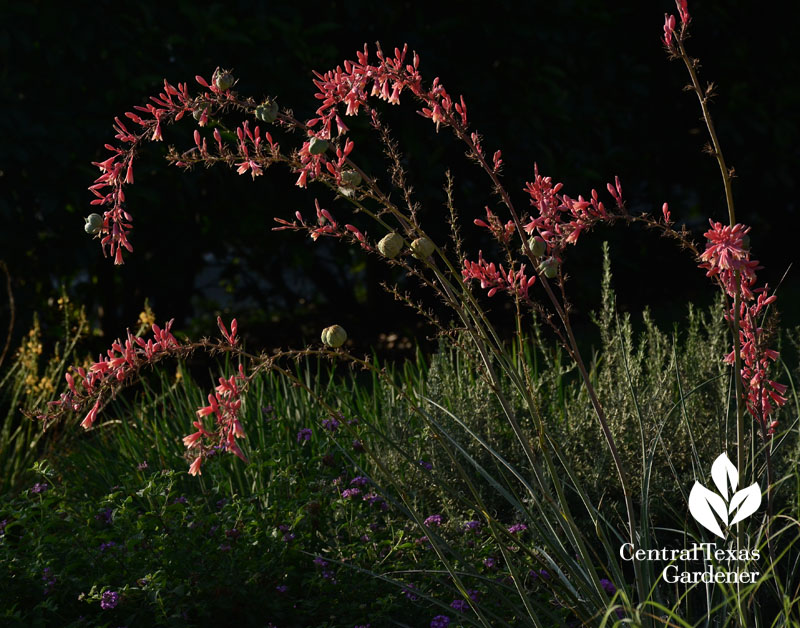
On my daily drive to KLRU, I really like watching this front yard evolve over the year with its play on colors and textures, even in drought.

I’d like to be this tidy. I’m not.

We do have something in common: structure with lots of plants for wildlife, like Tecoma stans (Esperanza or Yellow Bells) that attracts hummingbirds, bees, and butterflies.

On the home front, I was lucky to find the native Tecoma stans. Note the different leaves from cultivar ‘Gold Star’.
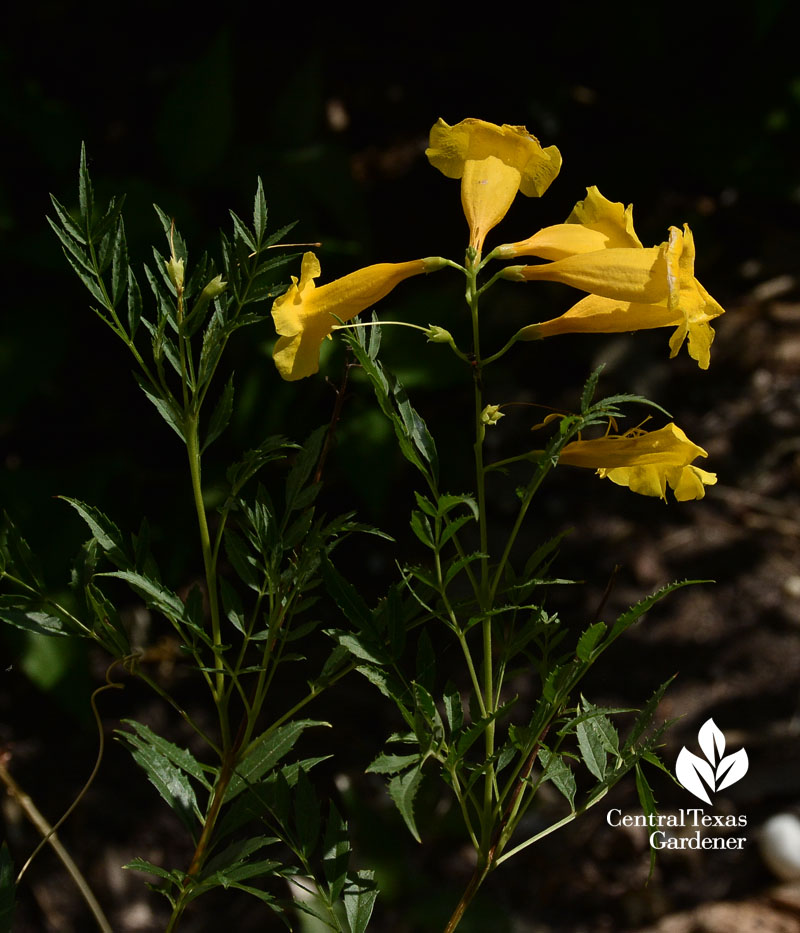
Desert willow is another hummingbird champion with its hot weather fireworks.
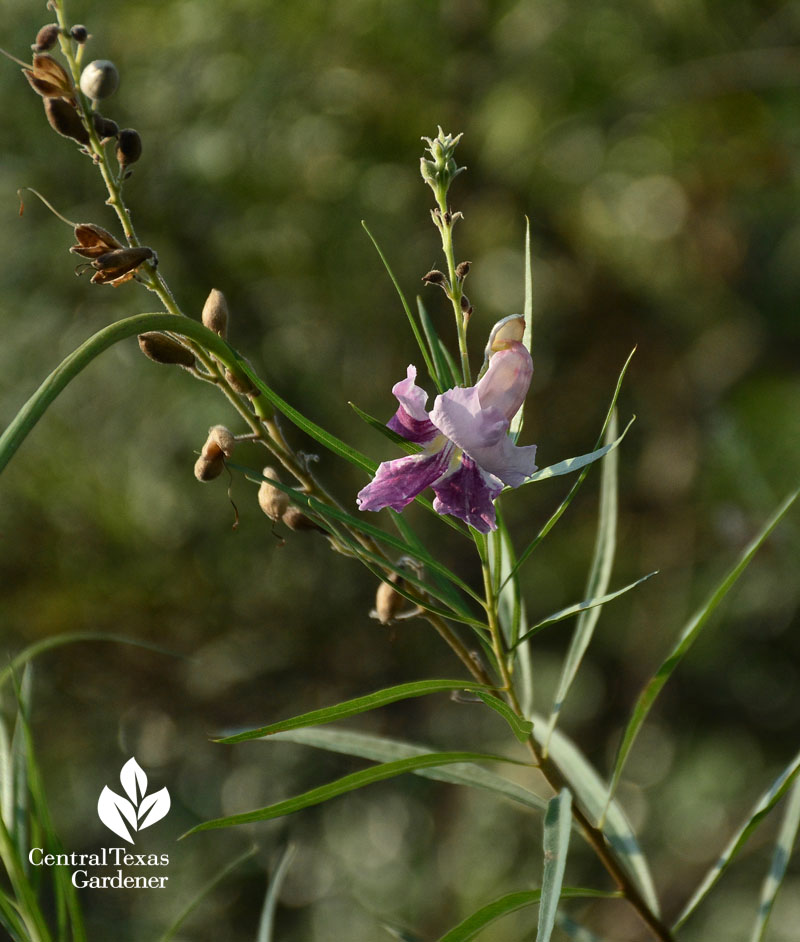
Even though my crinums don’t sag a bit in heat, so far this mystery one is the only to bloom.
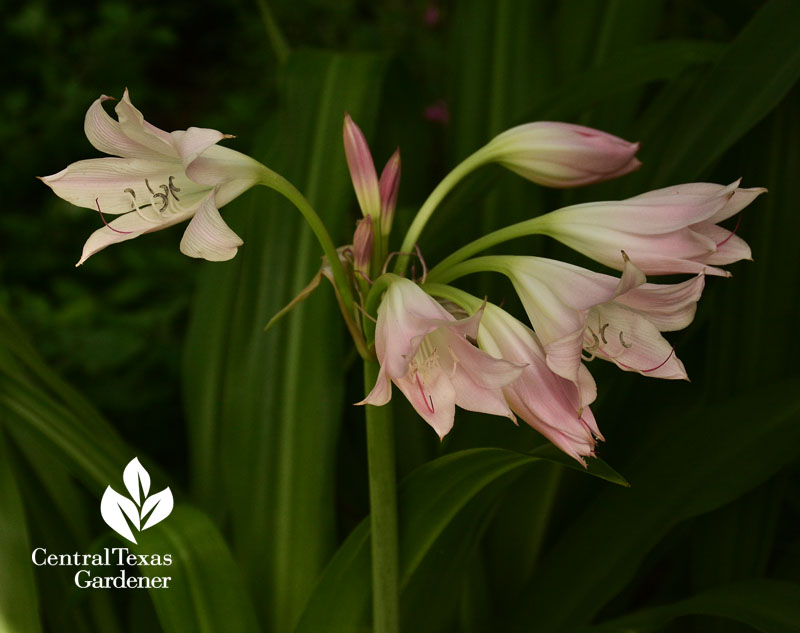
Since I don’t fare well with most yuccas, Beschorneria yuccoides ‘Flamingo Glow’ deeply satisfies structural contribution in this somewhat shady spot blasted by late afternoon fireworks.
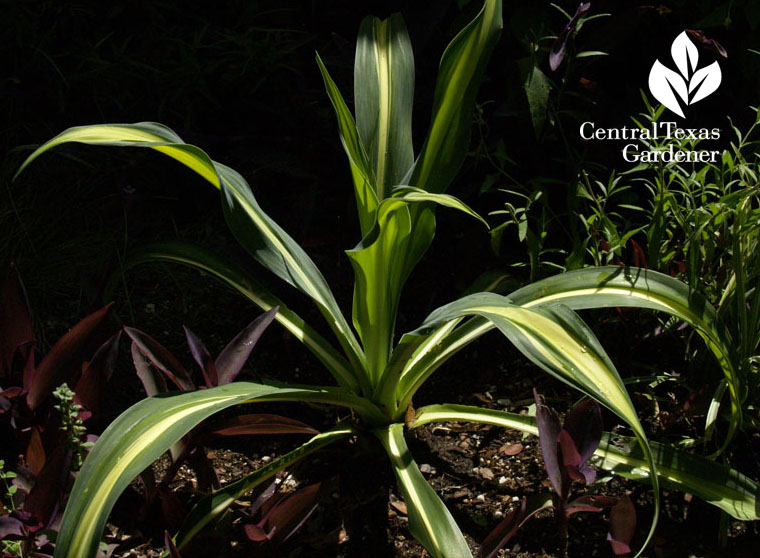
I’m still exploring its foreground options. For now, purple heart (Tradescantia pallida/Setcreasea pallida) gets the role.
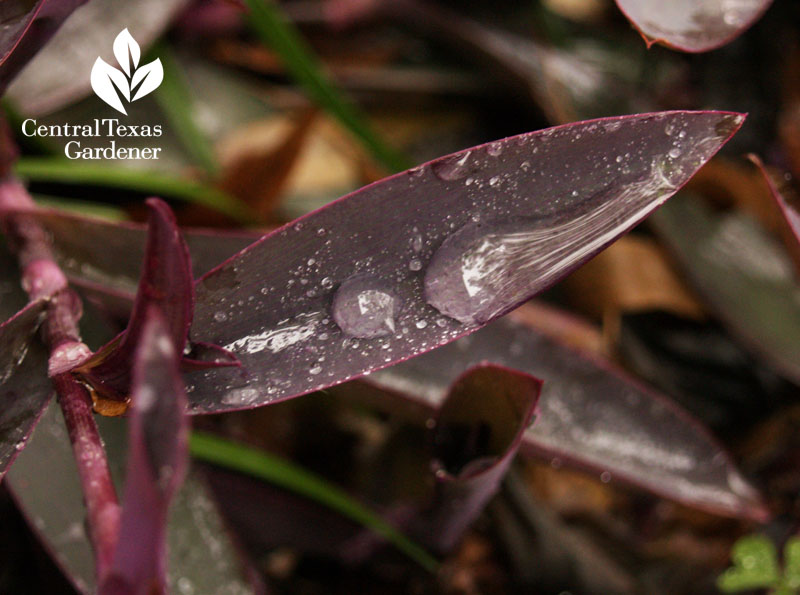
Yes, I know it’s common as mud, but who can resist a purple plant that defies drought and attracts insects to its flowers? Perhaps that’s why it’s been such a standby for years, don’t you think? And you don’t need a degree in horticulture to grow it.
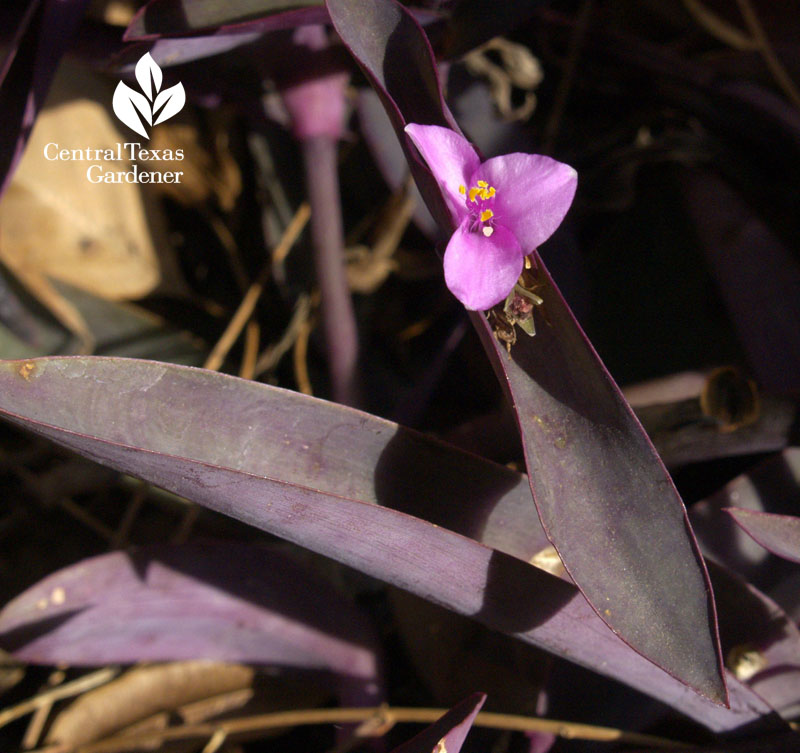
A Tradescantia that surprised me is cobweb spiderwort (Tradescantia sillamontana).
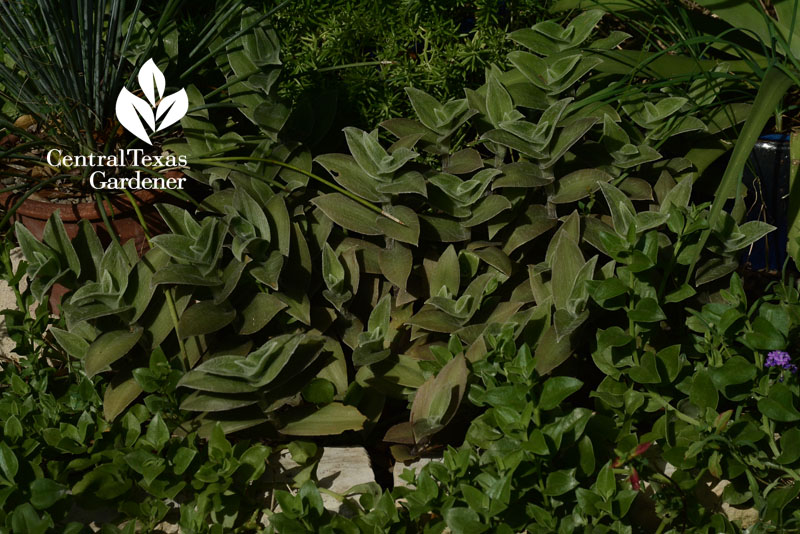
This experiment has been such a success that I may propagate it for the Beschorneria’s foreground. It dies back in winter, but not for long! Bonus points: it attracts beneficial insects, syrphid flies (hover fly).
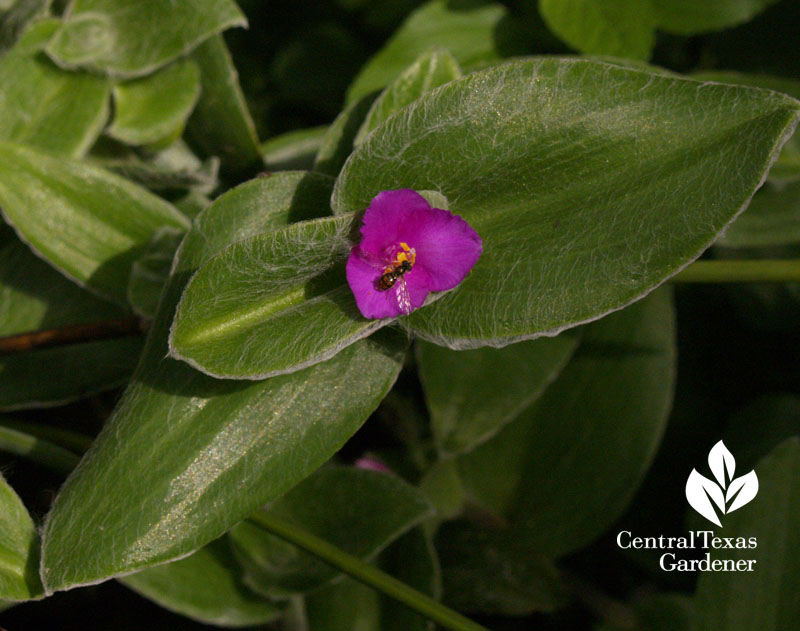
Aptenia (also called ice plant) just doesn’t give up, either. When I pulled out the lawn in this area, I stuck in a few cuttings. It hasn’t let up yet and even bloomed in December! A few ‘Fireworks’ gomphrenas are drooping over for a chat.
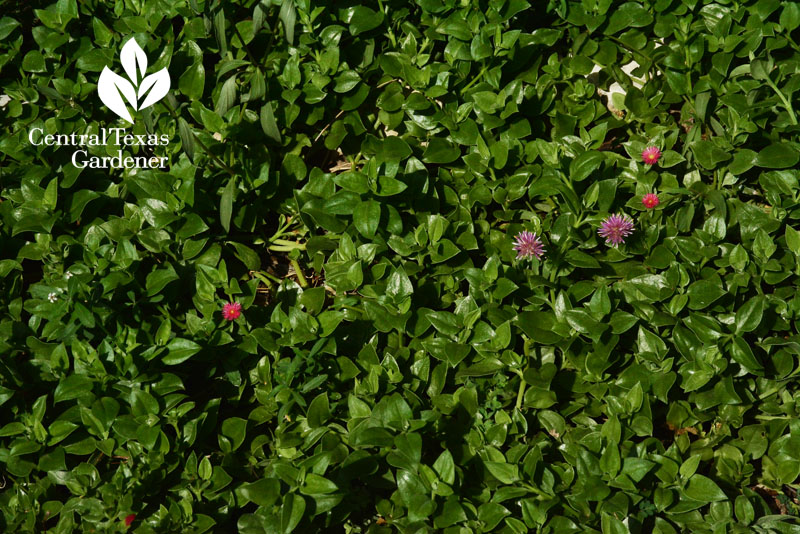
Native frogfruit (Phyla nodiflora) is blooming its little head off in this heat, most appreciated by tiny insects. It’s as cooling as the grass that once lined this strip, but with so many more benefits!
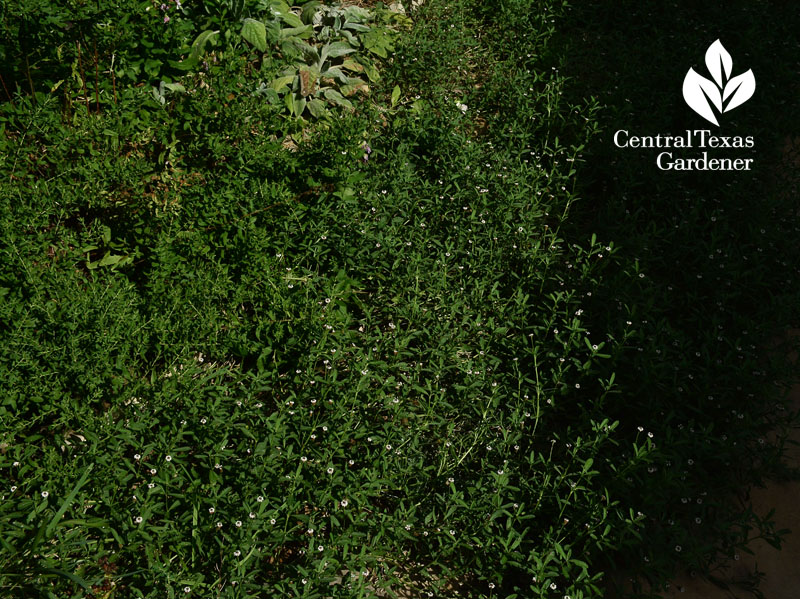
Thanks for stopping by and thanks for helping CTG get to SxSW! Linda
tags:

